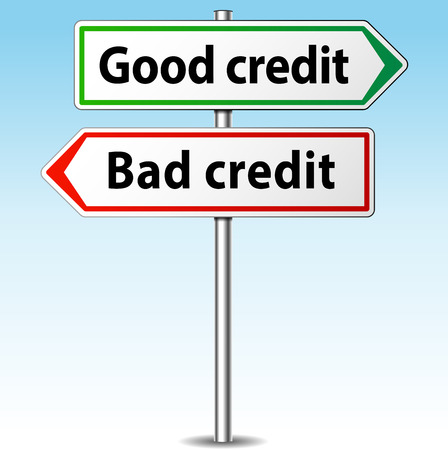What Is a Credit Score?
If you’re thinking about buying a home in the U.S., understanding your credit score is one of the most important steps. Your credit score isn’t just a random number—it’s a key part of whether you’ll get approved for a mortgage and what interest rates you’ll be offered.
Credit Score Basics
A credit score is a three-digit number that tells lenders how likely you are to pay back money you borrow. In the United States, most scores range from 300 to 850. The higher your score, the better you look to lenders. Here’s a quick breakdown:
| Score Range | Rating | What It Means |
|---|---|---|
| 800–850 | Excellent | You’re very low risk; lenders love this! |
| 740–799 | Very Good | You’re seen as dependable and responsible. |
| 670–739 | Good | You’re pretty reliable; most lenders will approve you. |
| 580–669 | Fair | Lenders might approve you, but it could cost more. |
| 300–579 | Poor | This makes getting a mortgage tough. |
How Credit Scores Are Calculated
Your credit score comes from your credit report, which keeps track of how you use credit. There are several things that go into figuring out your score:
- Payment History (35%): Do you pay your bills on time?
- Amounts Owed (30%): How much debt do you have right now?
- Length of Credit History (15%): How long have you been using credit?
- New Credit (10%): Have you opened new accounts recently?
- Credit Mix (10%): Do you use different kinds of credit, like loans and cards?
The Main Credit Reporting Agencies in the U.S.
There are three main agencies that keep track of your credit activity and report your scores:
- Equifax
- Experian
- TransUnion
Lenders will usually check at least one of these agencies when reviewing your mortgage application. Each agency might have slightly different information about you, so your scores can vary a little between them.
2. The Role of Credit Scores in Mortgage Approval
When youre applying for a mortgage in the United States, your credit score plays a major role in whether you get approved and what kind of loan terms you can expect. Lenders use your credit score to quickly evaluate how risky it might be to lend you money for a home. Let’s break down how this works and why your score matters so much.
How Lenders Use Credit Scores
Lenders rely on credit scores as a way to predict how likely you are to repay your loan on time. They pull your credit report from one or more of the major credit bureaus—Equifax, Experian, or TransUnion—and look at your FICO® Score or sometimes a VantageScore. These scores are calculated based on your payment history, amounts owed, length of credit history, new credit, and types of credit used.
Typical Credit Score Ranges
| Credit Score Range | Rating | Impact on Mortgage Approval |
|---|---|---|
| 760 – 850 | Excellent | Easier approval, best interest rates |
| 700 – 759 | Good | Likely approved, competitive rates |
| 650 – 699 | Fair | Possible approval, higher interest rates |
| 600 – 649 | Poor | Difficult approval, much higher rates or extra requirements |
| Below 600 | Very Poor | Unlikely to be approved by most lenders |
Why Your Score Matters for Mortgages
Your credit score doesnt just affect if you get approved—it also impacts the type of mortgage you qualify for and how much youll pay over time. A higher score usually means:
- You’re eligible for conventional loans with lower down payments.
- You get better interest rates, which can save thousands over the life of your loan.
- You may have fewer fees and less strict documentation requirements.
- You could have more options among different lenders.
If your score is lower, lenders see you as riskier. This might mean they offer you a mortgage with a higher interest rate or require you to pay for private mortgage insurance (PMI). Some government-backed loans like FHA or VA loans may still be available with lower scores but often come with their own rules and costs.

3. Score Ranges and What They Mean
When applying for a mortgage in the United States, your credit score plays a big role in determining your eligibility and the kind of loan terms you can expect. Lenders use your credit score to assess how risky it might be to lend you money. Here’s a breakdown of typical credit score ranges and what each one means for potential borrowers:
| Credit Score Range | Category | What It Means for Borrowers |
|---|---|---|
| 800–850 | Excellent | You’re seen as a very low-risk borrower. You’ll likely qualify for the best mortgage rates and have more options when choosing a loan. |
| 740–799 | Very Good | Lenders consider you low risk. You’ll almost always get favorable interest rates and good terms on your mortgage. |
| 670–739 | Good | You’re considered an average or acceptable risk. You should qualify for most mortgages, though your rates may not be the lowest available. |
| 580–669 | Fair | Lenders see you as a higher risk. You may still qualify for some mortgages, but expect higher interest rates and fewer loan choices. |
| 300–579 | Poor | This range makes it tough to get approved for a mortgage from most traditional lenders. If you do qualify, you’ll face high rates and stricter requirements. |
Your credit score is just one piece of the puzzle, but understanding these ranges helps you know where you stand before starting the mortgage process. Improving your score can make a significant difference in the types of loans available to you and how much interest you’ll pay over time.
4. How Your Credit Score Impacts Your Mortgage Terms
Your credit score plays a huge role in determining the mortgage options available to you when youre ready to buy a home in the United States. Lenders use your credit score to decide not just if you qualify for a loan, but also the details of your mortgage—like interest rates, down payment requirements, and whether youll need private mortgage insurance (PMI). Lets break down how each of these is affected:
Loan Options
Lenders offer different types of loans based on your credit score. If your score is high, youll have access to more loan programs, including those with better terms. With a lower score, your choices may be limited to loans with stricter requirements or higher costs.
Interest Rates
Your credit score directly affects the interest rate you’ll get. A higher score usually means a lower interest rate, which can save you thousands over the life of your loan. Here’s a simple comparison:
| Credit Score Range | Typical Interest Rate* |
|---|---|
| 760–850 | Lowest available rates |
| 700–759 | Slightly higher, still competitive |
| 620–699 | Moderate rates |
| Below 620 | Highest rates offered |
*Rates vary by lender and market conditions.
Down Payment Requirements
A better credit score often means you can put less money down upfront. For example, some loan programs let borrowers with strong credit make a down payment as low as 3%, while those with lower scores may need 10% or more.
Example Down Payments by Credit Score
| Credit Score | Typical Minimum Down Payment |
|---|---|
| Above 740 | As low as 3% |
| 620–739 | 3–5% |
| Below 620 | 10% or more |
Private Mortgage Insurance (PMI)
If your down payment is less than 20%, most lenders require PMI. However, your credit score can affect how much you pay for this insurance. Higher scores usually mean lower PMI premiums, helping keep your monthly payments affordable.
The Bottom Line on Credit Scores and Mortgages
Your credit score is one of the biggest factors in determining how easy it is to get approved for a mortgage and how affordable that mortgage will be. By understanding how it influences your options—from loan types and interest rates to down payment and insurance—you can make smarter decisions on your path to homeownership.
5. Tips to Improve Your Credit Score Before Applying
Why Improving Your Credit Score Matters
Lenders in the U.S. use your credit score as a key factor when deciding whether to approve your mortgage application and what interest rate to offer you. A higher credit score can save you thousands of dollars over the life of your loan, so taking steps to boost it before you apply is definitely worth the effort.
Practical Ways to Boost Your Credit Score
Check Your Credit Report for Errors
Mistakes on your credit report can drag down your score. Get free copies of your credit reports from the three major bureaus—Equifax, Experian, and TransUnion—at AnnualCreditReport.com. Look for errors like incorrect account information or payments marked late by mistake. Dispute any inaccuracies right away.
Pay Down Debt
Your credit utilization ratio (how much debt you have compared to your credit limits) plays a big part in your score. Aim to use less than 30% of your available credit on each card. Paying down high balances can quickly improve this ratio and give your score a boost.
| Step | What to Do | Why It Helps |
|---|---|---|
| Check Credit Reports | Review for errors at least 3 months before applying for a mortgage | Fixing mistakes can quickly raise your score |
| Pay Down Balances | Reduce credit card balances below 30% of limit | Lowers credit utilization, increasing your score |
| Make Payments On Time | Set up automatic payments if needed | Payment history is the biggest factor in your score |
| Avoid New Hard Inquiries | Don’t open new credit accounts unless necessary before applying for a mortgage | New inquiries can temporarily lower your score |
| Don’t Close Old Accounts | Keep older accounts open, even if not using them often | A longer credit history improves your score |
Avoid New Debt Before Applying
If you’re planning to apply for a mortgage soon, avoid taking out new loans or opening new credit cards. Each time you apply for credit, it creates a “hard inquiry” on your report, which can slightly lower your score temporarily.
Pay Bills On Time—Every Time!
Your payment history is the single biggest factor in your FICO score. Even one late payment can hurt you, so set reminders or enroll in autopay to make sure you never miss a due date.
Quick Checklist: Steps to Take Before You Apply for a Mortgage
- Review all three of your credit reports for accuracy.
- Dispute any mistakes right away.
- Pay off as much existing debt as possible, especially revolving debt like credit cards.
- Avoid opening new accounts or making large purchases on existing credit cards.
- Keep old accounts open to lengthen your credit history.
- Make all payments on time, every month.


